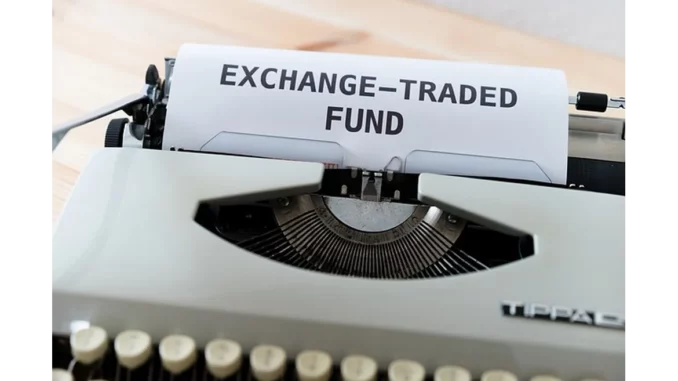
The highly anticipated Ethereum Exchange-Traded Funds (ETFs) are set to commence trading on Tuesday, July 23. These financial instruments will enable investors to purchase Ethereum, the second most popular cryptocurrency, in the form of stocks. Sources familiar with the matter have informed Reuters that at least three funds have received approval from the Securities and Exchange Commission (SEC) to enter the market on the launch date, although it is believed that a total of eight Ethereum ETFs will be introduced simultaneously.
These Ethereum ETFs follow the successful launch of eleven Bitcoin ETFs, which have garnered over $54 billion in assets under management since their introduction in January. Bitcoin itself has witnessed a remarkable 47% surge this year. As the Ethereum counterparts prepare to make their debut, here’s a comprehensive overview of what investors need to know.
Ethereum, or Ether, is the native cryptocurrency of the Ethereum blockchain. Despite some reservations from the SEC, Ether is legally classified as a commodity, while the corresponding ETFs will be considered securities. ETFs, which first emerged in 1993, pool together a basket of securities, such as various energy stocks, and their prices align with the indexes they track. They are listed on exchanges and can be traded during market hours, functioning much like stocks.
Spot Ether ETFs will track the current price of Ether, providing investors with exposure to the underlying cryptocurrency without the need to own a crypto wallet. These ETFs will be structured as grantor trusts, meaning investors will own a share of the Ether held by the trust. This setup allows for a more straightforward investment process, eliminating the complexities associated with direct cryptocurrency ownership.
The proposed Ethereum ETFs will be offered by eight asset managers: BlackRock, Ark Invest/21Shares, VanEck, Grayscale, Fidelity, Bitwise, Franklin Templeton, and Invesco/Galaxy Digital. While the specifics of each ETF will be nearly identical, the fees charged to investors will be competitive. Currently, it is known that Franklin Templeton will charge a fee of 0.19%, VanEck will charge 0.20%, and Invesco and Galaxy Digital will jointly charge 0.25%. The complete list of fees will be disclosed when the final registration statements, or S-1s, are submitted to the SEC, which is expected to occur on Tuesday if trading begins for all eight ETFs.
These ETFs will be accessible on major exchanges such as Nasdaq, the Chicago Board Options Exchange (CBOE), and the New York Stock Exchange. The decision to invest in Ethereum ETFs stems from the distinct characteristics and potential of Ethereum as compared to Bitcoin. While Bitcoin is often viewed as a long-term hedge against inflation, Ethereum is considered more akin to a technology investment. The primary premise of the Ethereum blockchain is to eliminate intermediaries and facilitate continuous financial services, including trading, lending, tokenization, digital collectibles, and digital identity.
Despite the tight correlation between crypto markets at present, this may not always be the case. Ethereum ETFs provide investors with the opportunity to diversify their investments within the crypto economy. However, the demand for Ethereum ETFs is projected to be about 20% of that for Bitcoin ETFs, according to James Seyffart, an ETF analyst at Bloomberg. This prediction is based on the market capitalization of Ether, which is approximately one-third the size of Bitcoin. Additionally, Ethereum ETF investors will not be allowed to stake, a process that generates yields, which may impact demand. Nonetheless, even at this smaller scale, these ETFs are expected to be highly successful by ETF launch standards.
Institutional investors, including hedge funds, pension funds, banks, and endowments, as well as retail investors, are anticipated to invest in these ETFs. Retail investors can access them either directly or through portfolio allocations advised by wealth managers. Historical data from spot Bitcoin ETFs indicates that over 80% of total assets under management came from non-professional investors during the initial trading months.
The introduction of Ethereum ETFs is poised to have a significant impact on the crypto market. If the predicted $4 billion inflow over the first six months materializes, this would result in 1% of Ether in circulation being absorbed by the ETFs by the end of the year. Such absorption is expected to bolster Ether’s price in the latter half of the year. Moreover, the influx of fresh capital into Bitcoin via ETFs has previously boosted the overall crypto market cap by 46%, suggesting that Ethereum ETFs could further strengthen the broader market.
The participation of traditional finance giants like BlackRock in issuing these funds signals a deeper commitment to the crypto industry and provides a substantial stamp of approval. This move is likely to encourage sidelined capital to enter the market, potentially attracting new investors who are prepared to navigate the volatility of the crypto landscape and commit to long-term investments.

Be the first to comment